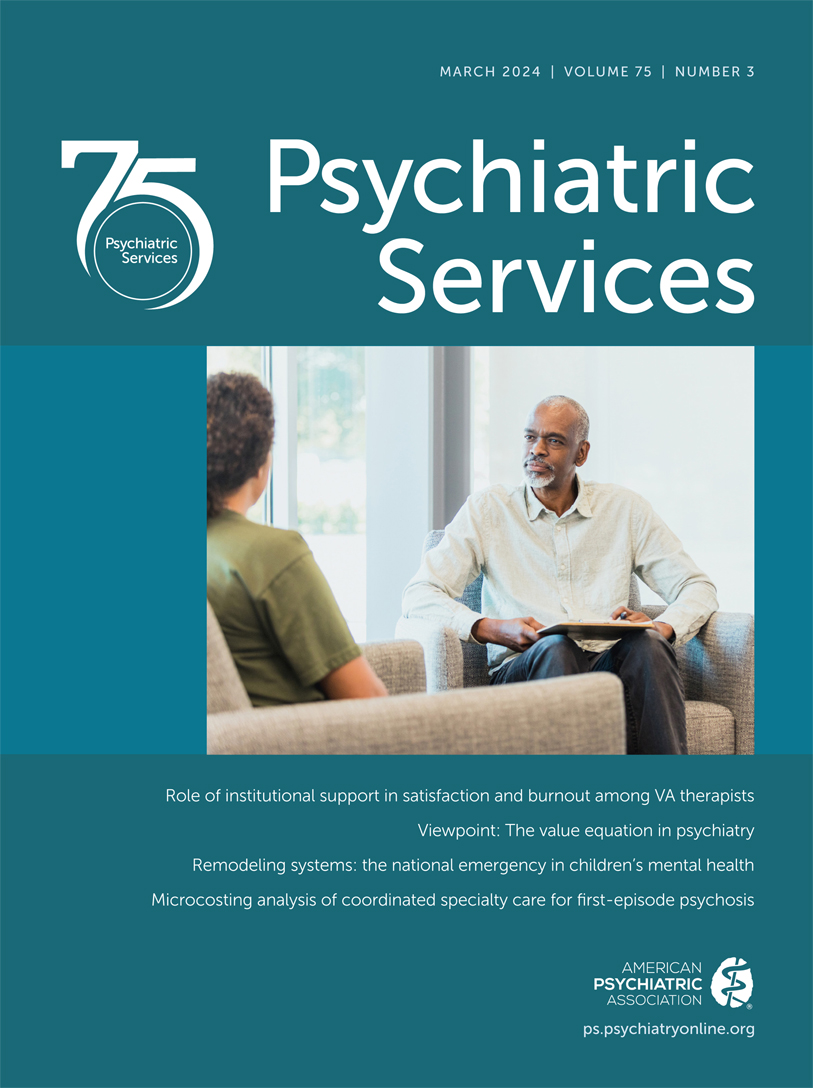Trends in Attention-Deficit Hyperactivity Disorder Diagnosis and Pharmacotherapy Among Adults With Opioid Use Disorder
Abstract
Objective:
This study aimed to assess nationwide trends in attention-deficit hyperactivity disorder (ADHD) diagnoses and pharmacotherapy among patients with opioid use disorder and ADHD and to examine factors predicting receipt of stimulant medications among patients receiving medications for opioid use disorder (MOUDs).
Methods:
A claims-based database of commercially insured patients ages 13–64 was used to conduct two analyses: an annual cross-sectional study of 387,980 patients diagnosed as having opioid use disorder (2007–2017) to estimate the prevalence of ADHD diagnoses and pharmacotherapy, and a retrospective cohort study of 158,591 patients receiving MOUDs to test, with multivariable regression, the association between patient characteristics and receipt of stimulant medication.
Results:
From 2007 to 2017, the prevalence of ADHD diagnoses increased from 4.6% to 15.1% and the rate of ADHD pharmacotherapy increased from 42.6% to 51.8% among patients with opioid use disorder. Among all patients receiving MOUDs, 10.5% received at least one prescription stimulant during the study period. Female sex; residence in the southern United States; and ADHD, mood, and anxiety disorder diagnoses were associated with increased likelihood of stimulant receipt. Stimulant use disorder and other substance use disorder diagnoses were associated with decreased likelihood of stimulant receipt.
Conclusions:
ADHD diagnoses and pharmacotherapy among patients with opioid use disorder have increased. A minority of patients with ADHD and taking MOUDs received a stimulant. Further study is needed of the benefits and risks of ADHD pharmacotherapy for patients with opioid use disorder.
Access content
To read the fulltext, please use one of the options below to sign in or purchase access.- Personal login
- Institutional Login
- Sign in via OpenAthens
- Register for access
-
Please login/register if you wish to pair your device and check access availability.
Not a subscriber?
PsychiatryOnline subscription options offer access to the DSM-5 library, books, journals, CME, and patient resources. This all-in-one virtual library provides psychiatrists and mental health professionals with key resources for diagnosis, treatment, research, and professional development.
Need more help? PsychiatryOnline Customer Service may be reached by emailing [email protected] or by calling 800-368-5777 (in the U.S.) or 703-907-7322 (outside the U.S.).



